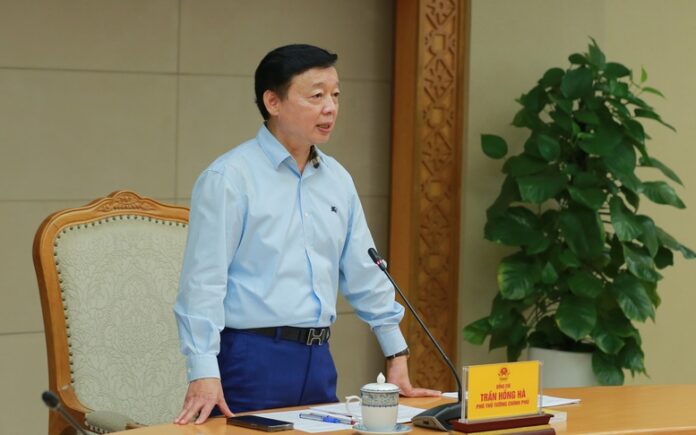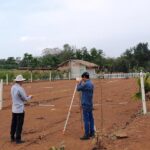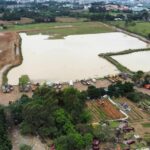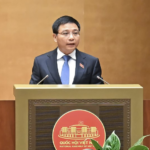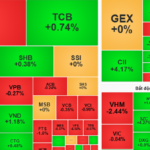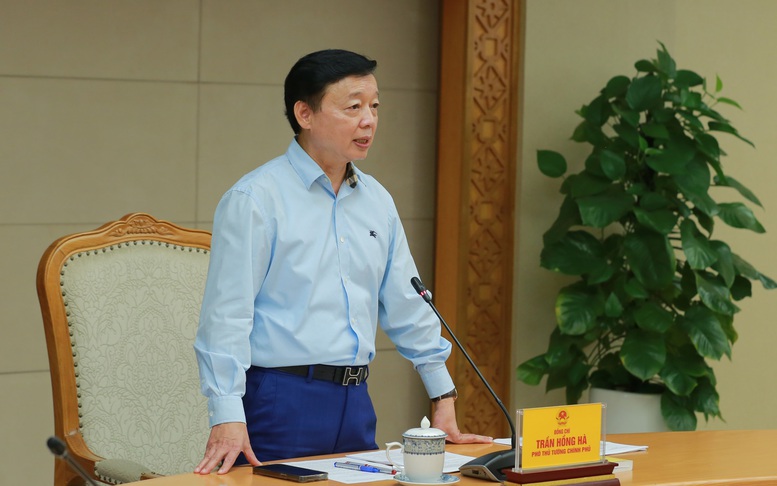
Deputy Prime Minister provides feedback on specific contents that need to be considered and amended in the 2024 Land Law.
Providing feedback on specific contents that need to be considered and amended in the 2024 Land Law, the Deputy Prime Minister requested a clear distinction between cases of agreement and cases of compulsory state revocation. There should also be a clear distinction between auction and bidding: land with infrastructure and specific planning should be auctioned, while land for social objectives, such as urban development, social housing, education, and healthcare, should be bid out to choose the investor with the highest social efficiency.
The land leasing policy needs to adjust its mindset, “not just looking at immediate revenue but also taking into account the added value and long-term benefits of the project.”
The Law also needs to clarify which cases are eligible for land leasing, which cases require valuation and auction, and which cases need to be prioritized for social benefits. “It is necessary to review tax policies, especially for idle and inefficiently used land, to apply progressive taxation. However, it should not contradict the policy of land accumulation in agriculture. Taxes should target real estate speculators without being applied indiscriminately.”
Regarding land valuation, the Deputy Prime Minister noted that there are still many obstacles due to the lack of synchronized data, inconsistencies among localities, and unclear mechanisms for the operation of the land price framework. “Resolution 18-NQ/TW has clearly stated this task but there are no truly breakthrough implementation solutions. A strong mechanism is needed, along with the selection of data and software investors, and a specific financial mechanism to implement synchronization nationwide.”
Regarding the policy on land access for foreigners, the Deputy Prime Minister noted that the proposed amendments to Resolution 18-NQ/TW and the 2024 Land Law must ensure harmony and compatibility with agricultural, rural, and farmer resolutions, institutionalizing the “four pillars” (Resolution 57- NQ/TW, Resolution 59-NQ/TW, Resolution 66-NQ/TW, and Resolution 68- NQ/TW)…
“If someone brings in millions of dollars and creates hundreds of jobs, but they cannot feel secure about owning a house, how can we encourage them to invest?”, the Deputy Prime Minister remarked.
In terms of land market management, the Deputy Prime Minister suggested a clear distinction between the primary and secondary land markets. Accordingly, the primary land market is where the state manages and regulates through policy and legal tools via forms of land allocation, land leasing, auction, or revocation for socio-economic development for the public good.
On the other hand, once the land has entered circulation in the market, i.e., the secondary market, it should be allowed to operate according to market mechanisms and be managed through planning for land use objectives, spatial development orientation, and infrastructure.
Transforming Land Usage: Navigating the Challenges of Converting Agricultural Land for Residential Dreams
Let me know if you would like me to continue refining or if you have another task for me!
“According to Chinhphu.vn, Mr. Tran Ngoc Than from Kien Giang province owns a 200-square-meter plot of land. He intends to change the land’s purpose to residential to build a house. However, when Mr. Than approached the one-door department of the People’s Committee to submit his application, he was denied acceptance. This incident raises questions about the ease of navigating land-use regulations and the accessibility of administrative services in Vietnam.”
Purchasing Agricultural Land: What to Do When Your Red Book ‘Expires’?
Individuals who directly engage in agricultural production and have been granted the right to use agricultural land within the prescribed allocation limit, even after the initial land use term has expired, are entitled to continue cultivating that land for an extended period of 50 years without undergoing any renewal procedures.
“How to Rezone Agricultural Land for Residential Use”
“The 2024 Land Law sets out a clear framework for converting agricultural land use within residential areas. This process is guided by district-level land-use planning, as well as urban planning regulations approved by the relevant authorities. These plans could be in the form of master plans or sub-zone plans, providing a comprehensive framework for sustainable development.”
The Real Estate Industry’s Struggle with a Mountain of Project Red Tape
“The implementation of the trio of new real estate laws has had a muted impact on the industry over the past ten months. Businesses have expressed that the laws have not significantly affected various segments of the market. The journey of a project from conception to completion remains a tedious one, fraught with a maze of procedures and a hundred bureaucratic hoops to jump through, each demanding their pound of red tape and seals of approval.”
“Provincial Chiefs: The New Land Allocators – A Decision-Making Power Shift”
Let me know if you would like me to tweak it or provide other options!
“Addressing the concerns of the business community regarding land-related issues, Minister of Agriculture and Environment, Do Duc Duy, shared insightful news. In a bid to facilitate a more efficient process for businesses, the Ministry is crafting a decree on decentralization and delegation of authority. A key proposal within this decree is to transfer the authority of the Prime Minister to the Provincial People’s Committee Chairmen, a move designed to streamline decision-making and provide much-needed ease to entrepreneurs navigating land matters.”

